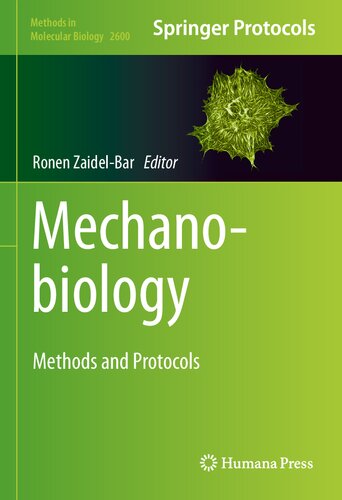

Most ebook files are in PDF format, so you can easily read them using various software such as Foxit Reader or directly on the Google Chrome browser.
Some ebook files are released by publishers in other formats such as .awz, .mobi, .epub, .fb2, etc. You may need to install specific software to read these formats on mobile/PC, such as Calibre.
Please read the tutorial at this link: https://ebookbell.com/faq
We offer FREE conversion to the popular formats you request; however, this may take some time. Therefore, right after payment, please email us, and we will try to provide the service as quickly as possible.
For some exceptional file formats or broken links (if any), please refrain from opening any disputes. Instead, email us first, and we will try to assist within a maximum of 6 hours.
EbookBell Team

0.0
0 reviewsThis detailed book collects methodologies exploring mechanobiology, the involvement of mechanical forces in cell fate specification and in controlling single and collective cell behaviors such as directed migration, morphogenesis, wound healing, and the immune response.
The volume features methods to quantify the mechanical properties of cells and adhesion proteins, to expose cells to external mechanical forces, to quantitatively characterize mechano-responses at various scales, to measure forces applied by cells on the extracellular matrix, as well as chapters on force measurement inside cells, probing cell signaling and gene expression in response to force, and biophysical modeling of cell shape and protein dynamics.
Written for the highly successful Methods in Molecular Biology series, chapters include introductions to their respective topics, lists of the necessary material and reagents, step-by-step and readily reproducible protocols, and tips on troubleshooting and avoiding known pitfalls.
Authoritative and practical, Mechanobiology: Methods and Protocols aims to provide meaningful tools for cell and developmental biologists approaching the study of cell and tissue dynamics from a mechanobiological perspective, molecular biologists interested in the effects of force on proteins, as well as for cancer biologists and biophysicists.